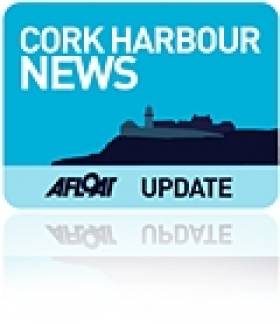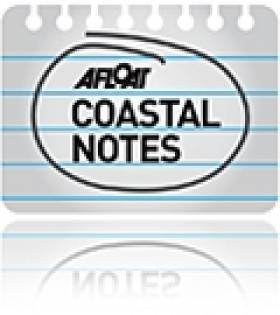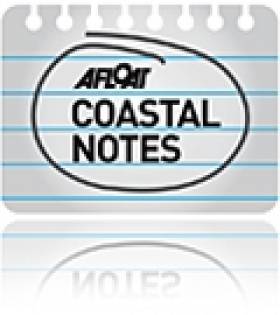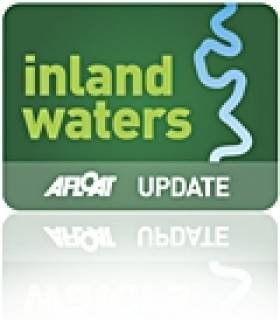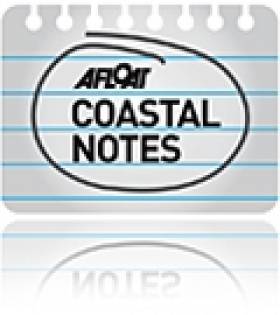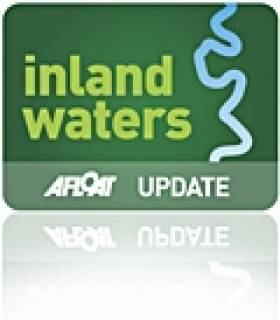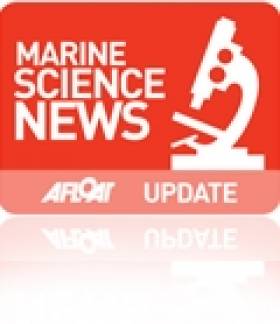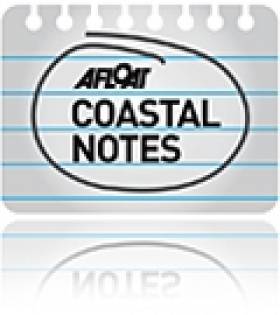Displaying items by tag: pollution
Rising Seas Pose Future Leak Threat To Sellafield Dump
#IrishSea - One million cubic metres of radioactive waste at a dump site near Sellafield is at risk of contaminating the Irish Sea in the future, according to papers released by Britain's Environment Agency.
According to The Guardian, the internal report says it is "doubtful" whether the location of the Drigg Low-Level Waste Repository (LLWR) on the Cumbrian coast "would be chosen for a new facility for near-surface radioactive waste disposal if the choice were being made now."
Though the full effects of coastal erosion, weathering and flooding are not expected to be felt until "a few hundred to a few thousand years from now", the agency has expressed worry over the site's gradual exposure to the elements.
This is compounded by fears that past deposits at the site over the last 55 years have included higher-level radioactive waste than intended.
The Guardian has more on the story HERE.
Decision Due Next Month On Future Of Cork Harbour Toxic Dump
#CorkHarbour - 24 April is the date set for a decision on the clean-up of the toxic waste site on Haulbowline Island in Cork Harbour, as RTÉ News reports.
The news comes at the conclusion of the oral hearing into proposals for the former Irish Steel/Ispat plant, for which the only submission received was from the applicant Cork City Council.
The hearing was told by risk consultants representing the council that the site in its present state no immediate or long-term risk to the community at large.
However, Dr Cecilia MacLeod of consultants WYG echoed the concerns of local councillors last month over breaches in the embankments around the toxic dump, which contains some half a million tonnes of waste, when she said the site remains a health risk to the locality.
Plans for the site currently involve landscaping the area, with a perimeter wall to prevent leaching of potentially hazardous or carcinogenic matter.
RTÉ News has more on the story HERE.
#CoastalNotes - Seven large urban coastal areas are among more than 40 towns nationwide still seeing untreated sewage released into the water supply, the Environmental Protection Agency (EPA) warns.
According to RTÉ News, the EPA says the current situation is in breach of an EU directive issued more than two decades ago.
Yet three large towns – Killybegs in Co Donegal, Ringaskiddy on Cork Harbour and Arklow in Co Wicklow - have been waiting some 13 years for secondary wastewater treatment facilities.
Moreover, it's been found that nearly a third of established secondary treatment plants nationwide do not meet the EU's main effluent standards, prompting serious pollution concerns.
Clifden in Co Galway and the Co Cork towns of Youghal, Cobh and Passage West have also been identified among the bigger urban areas still discharging untreated wastewater into coastal waters.
The news comes just weeks after it was discovered that effluent from an entire town in Co Galway is being piped into a Special Area of Conservation.
RTÉ News has more on the story HERE.
Shoreline Litter Rises In Latest Coastwatch Survey Results
#CoastwatchSurvey - Last year's hot summer resulted in an increase of discarded drinks bottles around Ireland's coastline, according to the results of the latest Coastwatch survey.
The Irish Times reports on the findings of the Autumn 2013 coastal count, which concluded in mid-October - and the outcome shows some correlation between the unusually warm and sunny summer months that brought people to the seaside in droves, and an increase in both plastic and glass bottles littered on the shoreline.
The survey results also confirmed the rise in the numbers of jellyfish in Ireland's warming waters, as previously reported on Afloat.ie.
The Irish Times has more on the story HERE.
Parasite Outbreaks In Roscommon Water Supply
#Pollution - Three dead calves found in a stream that flows into one of Roscommon town's main water sources have been alleged as the source of two outbreaks of the parasitic disease cryptosporidiosis that have seen 13 people treated for stomach-related complaints, as RTÉ News reports.
Council visits to farms in the catchment area of Roscommon's central water supply scheme have since identified 11 cases of poor management of run-off out of 66 occasions.
Residents in Roscommon and Boyle are still being asked to boil all tap water at home until further notice, and have been warned that home filters will not make the water potable.
#CoastalNotes - More than 97% of Ireland's bathing areas meet the EU's minimum standards for water quality in new figures announced today 2 May - though 21 waters have been stripped of the top ranking.
The latest figures for 2012 were released today in a new report from the Environmental Protection Agency (EPA), whose director general Laura Burke said that the "quality of Ireland's bathing waters remained very high despite remarkably wet summer weather in 2012".
As reported last year on Afloat.ie, water runoff from heavy summer flooding led to elevated levels of E.coli in many coastal areas, causing the temporary closure of beaches in Cork, Galway and North Dublin.
It's this rise in levels of harmful bacteria above mandatory EU safety levels that resulted in the poor performance of some perennial bathing favourites in the 2012 figures, as The Irish Times reports.
The number of beaches meeting the EU's stricter 'good' bathing quality standards fell from 112 in 2011 to 91 waters last year.
EPA senior scientific officer Peter Webster told The Irish Times that the fall "is disappointing but I'm surprised it was not more".
And despite the drop, three local authorities - Dun Laoghaire-Rathdown, Sligo and Leitrim - managed to achieved 'good' status for all of their designated bathing areas.
The worst performing beaches were Clifden in Galway, Fountainstown in Cork, Ballyheigue in Kerry and Rush in North Dublin, all of which were ranked as 'poor' for water quality.
Remedial water treatment works are planned for Clifden, while it's reported that no cause was found for a single "uncharacteristically high" sample taken from Ballyheigue.
Accidental Pollution Leads To Fish Kill In Co Kerry
#FishKill - Accidental pollution from a farm in Co Kerry has resulted in a fish kill on a tributary of the Ballyline River.
Inland Fisheries Ireland were contacted by Kerry County Council on Saturday 16 March after being altered by a farmer to a slurry spill on his property in the Kilgarvan area of Ballylongford.
Upon arriving at the farm, IFI officers found one side of the slurry pit wall had collapsed, resulting in a large slurry spill. Two cattle were also injured in the incident and had to be put down.
The slurry went into a watercourse that eventually flows into the Shannon Estuary at Ballylongford Bay.
The farmer had carried out emergency measures on site attempting to contain the slurry and also trying to minimise the impact to fish and wildlife downstream.
Fisheries officers carried out a visual inspection downstream but as the slurry was still passing there was strong discolouration and so it was impossible to see any dead fish. Samples were taken and sent for analysis immediately.
The situation was monitored over the weekend, and a full walkover of the stream was carried out as the water cleared on Tuesday 19 March.
IFI can confirm that a fish kill took place as a result of the pollution incident, and that 150 brown trout, hundreds of stickleback, one eel and one flounder were recovered. The section of river downstream from the farm to Gortanacooka Bridge was the most heavily impacted.
Currently there is a buildup of organic sediment in the river from the farm to the first bridge in Graffa Bog, which IFI says will not disperse until there is a flood in the river.
The farm was also inspected on the evening of 19 March and the water within the watercourse was clear. The investigation continues.
Pioneering Plan To Recycle Plastic Waste From The Sea
#MarineScience - A green cleaning brand plans to use science to recycle plastic waste from the sea in the production of a new type of sustainable plastic bottle.
The Guardian reports that Belgian firm Ecover is working with plastic manufacturer Logoplaste to combine plastic taken from the sea with recycled plastic and a type of plastic made from sugar cane known as Plantastic.
Chief executive Philip Malmberg said: "We won't have a definitive figure on the amount we will retrieve, we are just hoping to get as much as is possible and give fishermen an incentive to join the initiative and help clean the seas."
Plastic waste accounts for almost 60% of all litter on Britain's beaches, according to stats from the Marine Conservation Society - and can also cause great harm to marine wildlife, after recent reports that a sperm whale washed up dead in Spain had swallowed 17kg of plastic waste dumped by farmers growing vegetables for UK supermarkets.
It's hoped that boats can be outfitted with special equipment that will allow them to collect up to eight tonnes of plastic waste for recycling - and that fishermen can deposit any plastic they collect at designated points.
The Guardian has much more on the story HERE.
Extend Plastic Bag Levy to Sanitary Waste Says Coastwatch
#COASTAL NOTES - Coastwatch Ireland has urged for the plastic bag levy to be applied to sanitary products, balloons, lighters and other disposables that can be harmful to Ireland's marine wildlife.
The Irish Times reports on the call from the environmental network's Irish director Karin Dubsky at yesterday's launch of the findings from the recent 25th anniversary survey of Ireland's coastline.
As reported on Afloat.ie in October, the month-long volunteer survey took in use of land and shore, water quality, pollution levels and marine wildlife and plantlife.
More than 18,000 drinks containers - mostly plastic bottles - were found by volunteers on the 3% of Irish coastline sampled for the survey.
And despite a 50% fall over 14 years, sanitary waste such as condoms and dirty nappies were still a problem on beaches.
While suggesting a broadening of the plastic bag levy, Dubsky also called for a 'deposit on return' scheme for drinks containers to reduce letter and encourage recycling.
The survey also reported more positive news, with nitrate levels in outflow waters below detection in half the surveyed areas for the first time since 1993.
The Irish Times has more on the story HERE.
UK Watchdog Slams Sellafield Nuclear Waste Handling
#SELLAFIELD - Radioactive waste stored at Sellafield poses an "intolerable risk" to the environment, according to the UK's National Audit Office.
RTÉ News reports that a new study from the British government department watchdog highlights the failure of successive operators of the UK's largest nuclear plant to properly dispose of waste from the facility over more than 50 years.
The complex, on the coast of the Irish Sea in Cumbria, is said to contain enough contaminated waste to fill 27 Olympic-sized swimming pools.



























